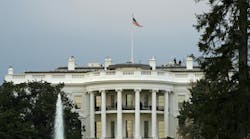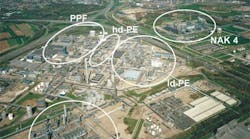Those who subscribe to the conventional wisdom that the Middle East is a hopeless political quagmire assume too much and understand too little, according to foreign policy analysts speaking on Capitol Hill this winter.
The Atlantic Council of the United States, the Middle East Institute, the Middle East Policy Council, and the Stanley Foundation recently hosted an informal briefing for congressional staff called "US Challenges and Choices in the Gulf: Political Liberalization."
"Given that many (Persian) Gulf states only achieved independence in the 1970s and have only enjoyed one or two generations of formal education, swift progress toward mature and stable democracies may be too much to expect," according to a synopsis of the event furnished by the Stanley Foundation. "But there is undeniable movement toward greater political participation in almost every gulf state. However imperfect or halting, change is in the air."
Reform and risk
Parliamentary elections in Bahrain raised questions about the prospects for political reform and greater openness in Persian Gulf state monarchies, the report said.
"While most of the reforms evident in gulf states have been top-down and rather limited in effect, they seem to reflect popular demands for greater participation and greater accountability. Demography, economic problems, and public demonstrations are all driving political reform efforts in gulf states."
However, with reform comes risk.
"The movement toward political liberalization evident in almost every gulf country is offset by the risks of instability brought about by these very reforms," the foundation said.
Consequently, progress is likely to be slow, especially by Western standards.
Analysts noted that historically, the lack of political openness in Persian Gulf societies has made mosques the only arena for public political activity. The result is that the opposition groups that have emerged are almost exclusively Islamist and often anti-Western. These groups continue to thrive.
Policy choices
The US can help nurture political reforms while taking steps to reduce the risks such reforms pose to US interests in the Persian Gulf, analysts said. Encouraging liberalization might create the political space necessary to allow moderate opposition groups to flourish in the region. But today's policymakers are typically more concerned with preserving stability because of the strategic importance of the oil-rich region.
Analysts suggested that in tackling this dilemma, US policymakers might consider providing moral encouragement and a positive example for moderate opposition parties, especially those organizing themselves in venues other than mosques. They also recommended "fostering liberal values along with demands for democratic processes, so that liberalization does not lead to uniformly anti-US attitudes in Arab politics."
The US also should work harder to improve economic and social conditions in poorer Persian Gulf states so that liberalization does not lead to instability. Policymakers should recognize reformist leaders while not undermining their domestic legitimacy and "encourage the growth of political movements and social institutions that will participate in and support stable democratic systems."

